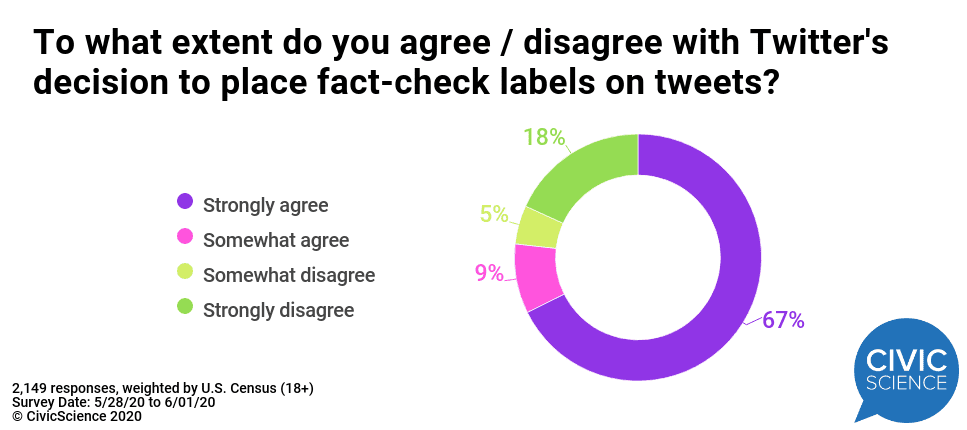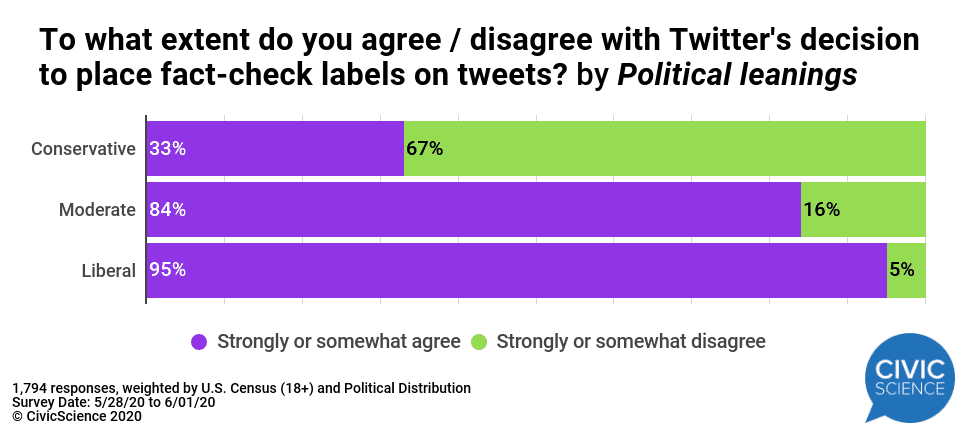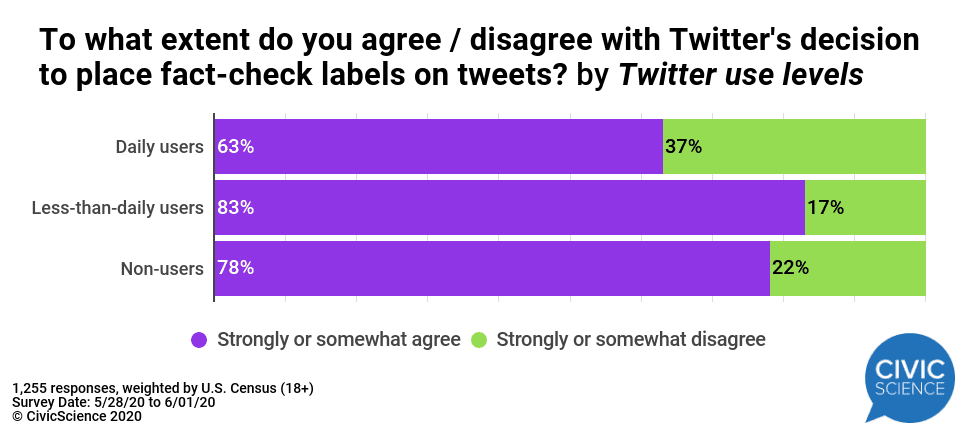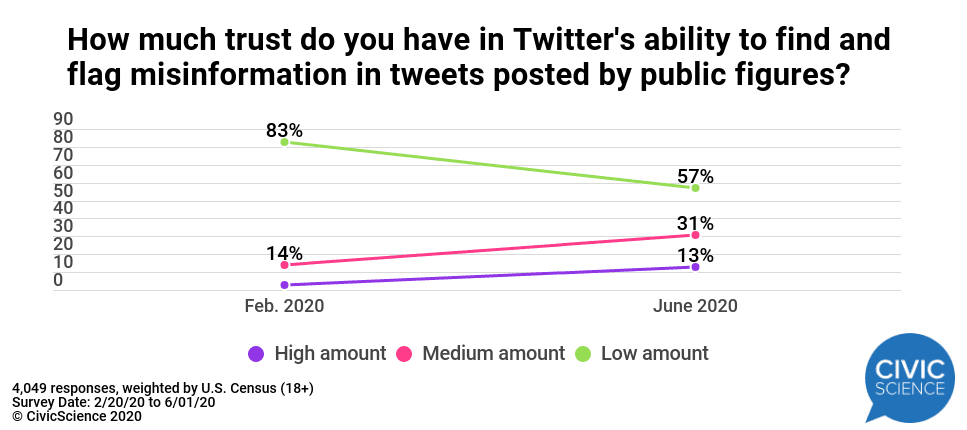Twitter’s policies regarding misinformation and fact-checking have become a topic of national debate in recent weeks, following the platform’s decision to flag tweets from President Trump.
According to a CivicScience survey of more than 2,100 U.S. adults in late May and early June, a strong majority of Americans agree with the general idea of Twitter placing fact-check labels on tweets.
On to the obvious question: What role does politics play in this issue? It seems that, in this case, overwhelming majorities of both liberals (95%) and political moderates (84%) agree with Twitter’s fact-checking efforts, while only one-third of conservatives are on board.
And, while CivicScience research has shown that daily Twitter users in 2020 are almost evenly split three ways between conservatives, liberals, and moderates, it seems that daily Twitter users in general are substantially less likely (63% vs. 76%) than the General Population to either “strongly” or “somewhat” agree with the platform’s decision to fact-check tweets. Still, though, a majority of daily users (63%) agree with the fact-checks.
And it appears that the public’s trust in Twitter to fact-check / flag misinformation is only increasing. In a February survey by CivicScience, only 17% of U.S. adults said they had a “high” or “medium” amount of trust in Twitter’s ability to find and flag misinformation. In the early June survey, that number more than doubled to 44%.
Needless to say, it’s intriguing that daily Twitter users were so much less likely than non-users to say they don’t agree with the idea of the platform placing fact-checks on tweets. It appears that much of the opposition to the idea is coming from political conservatives, two-thirds of whom are against the practice — and who have been a growing presence on the platform over the past several years.












